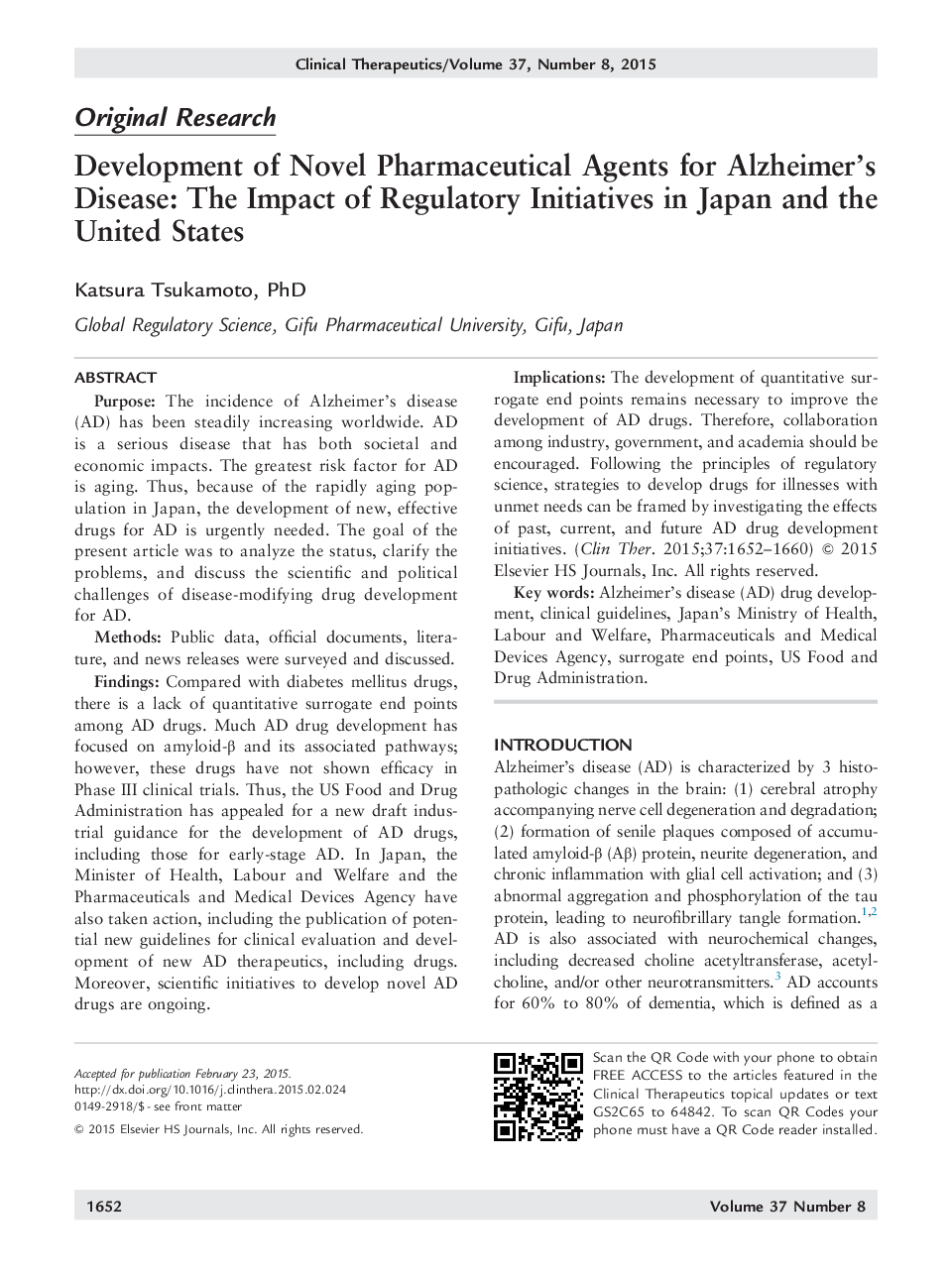| کد مقاله | کد نشریه | سال انتشار | مقاله انگلیسی | نسخه تمام متن |
|---|---|---|---|---|
| 5824902 | 1119882 | 2015 | 9 صفحه PDF | دانلود رایگان |

PurposeThe incidence of Alzheimer's disease (AD) has been steadily increasing worldwide. AD is a serious disease that has both societal and economic impacts. The greatest risk factor for AD is aging. Thus, because of the rapidly aging population in Japan, the development of new, effective drugs for AD is urgently needed. The goal of the present article was to analyze the status, clarify the problems, and discuss the scientific and political challenges of disease-modifying drug development for AD.MethodsPublic data, official documents, literature, and news releases were surveyed and discussed.FindingsCompared with diabetes mellitus drugs, there is a lack of quantitative surrogate end points among AD drugs. Much AD drug development has focused on amyloid-β and its associated pathways; however, these drugs have not shown efficacy in Phase III clinical trials. Thus, the US Food and Drug Administration has appealed for a new draft industrial guidance for the development of AD drugs, including those for early-stage AD. In Japan, the Minister of Health, Labour and Welfare and the Pharmaceuticals and Medical Devices Agency have also taken action, including the publication of potential new guidelines for clinical evaluation and development of new AD therapeutics, including drugs. Moreover, scientific initiatives to develop novel AD drugs are ongoing.ImplicationsThe development of quantitative surrogate end points remains necessary to improve the development of AD drugs. Therefore, collaboration among industry, government, and academia should be encouraged. Following the principles of regulatory science, strategies to develop drugs for illnesses with unmet needs can be framed by investigating the effects of past, current, and future AD drug development initiatives.
Journal: Clinical Therapeutics - Volume 37, Issue 8, 1 August 2015, Pages 1652-1660